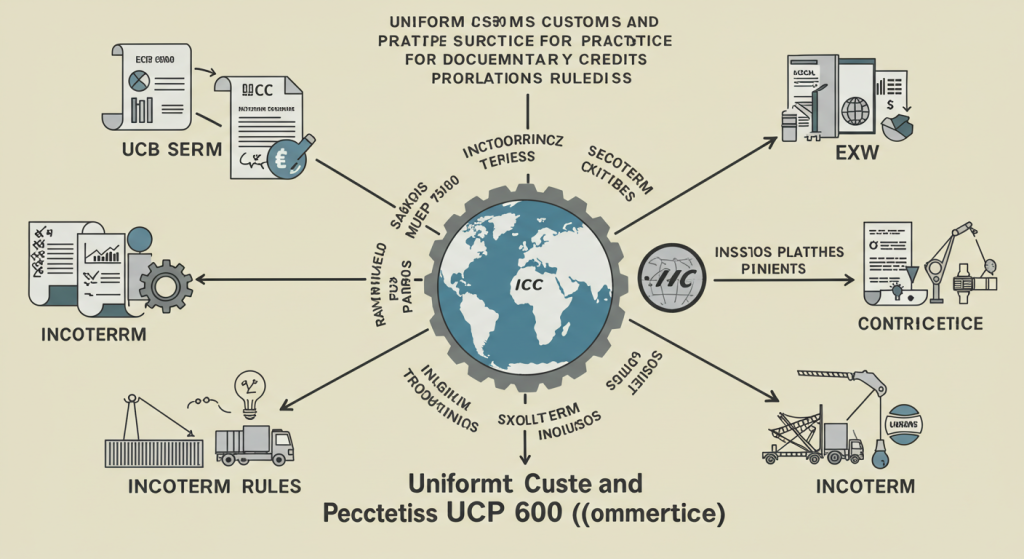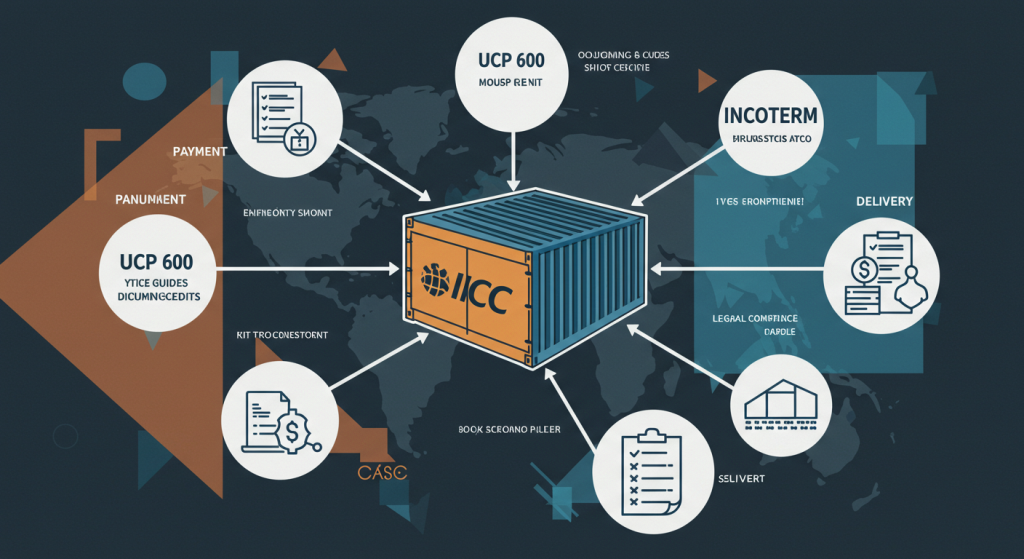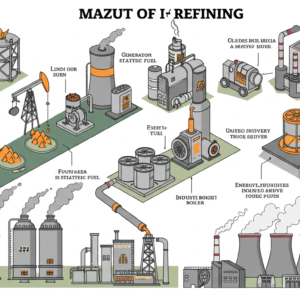🧩 Introduction
In global trade, contracts are the backbone of every transaction. Unlike domestic business, international trade involves different legal systems, cultures, and logistics. To ensure clarity and consistency, standardized international frameworks like ICC, UCP 600, and Incoterms have been developed.
🏛️ What is ICC?
The International Chamber of Commerce (ICC) is the world’s largest business organization. It develops standardized rules to facilitate global commerce, including Incoterms and UCP 600.
🔹 Purpose: To provide a neutral, harmonized structure for international trade
🔹 Function: Referenced in international courts and arbitration
📜 What is UCP 600?
The Uniform Customs and Practice for Documentary Credits (UCP 600) is a set of guidelines published by ICC governing how documentary letters of credit (LC) are issued and interpreted.
✅ Clearly defines roles of banks, buyers, and sellers
✅ Standardizes timelines for document examination
✅ Ensures objectivity in document-based decisions
📌 For example, in a sight LC, banks evaluate only the documents—not the physical goods.
🌍 What are Incoterms?
Incoterms (International Commercial Terms) are globally accepted trade terms that define the responsibilities of buyers and sellers in international transactions.
📦 Examples include: FOB, CIF, EXW, DDP, CFR, etc.
🔹 Example: In FOB, the seller delivers goods to the port. Risk transfers to the buyer upon loading.
📊 Comparison Table:
| Aspect | ICC | UCP 600 | Incoterms |
|---|---|---|---|
| Purpose | Overall trade framework | Regulates documentary credits | Defines delivery obligations |
| Publisher | International Chamber of Commerce (ICC) | ICC | ICC |
| Latest Version | Not applicable (umbrella body) | Version 600 (2007) | Version 2020 |
| Contractual Role | Legal backbone for trade | Governs LC usage | Clarifies buyer/seller duties |
🚧 Why Are These Agreements Important?

🔸 Avoid legal misunderstandings
🔸 Speed up customs clearance
🔸 Build trust in trade relationships
🔸 Enable arbitration for dispute resolution











